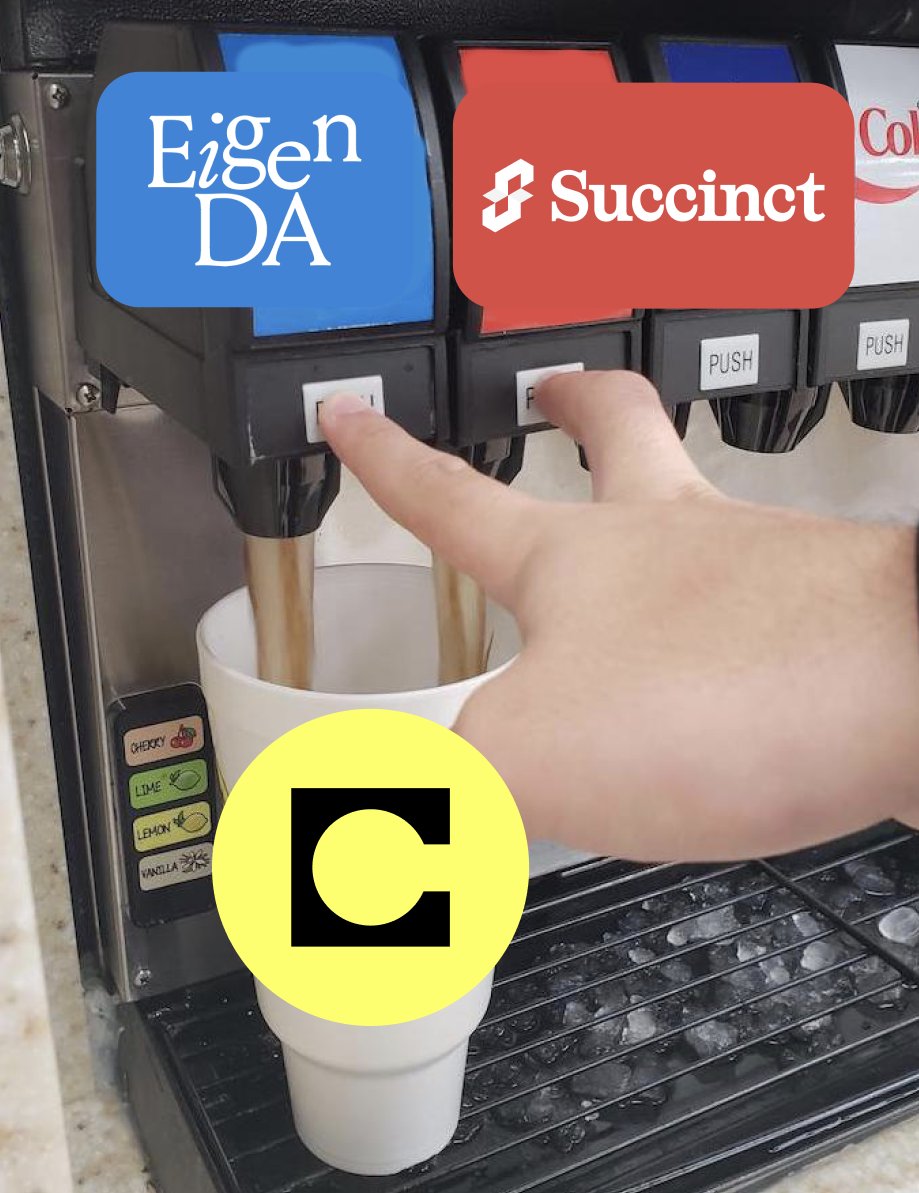Eigen price
in USDCheck your spelling or try another.


About Eigen

Eigen’s price performance
Eigen on socials

Guides

Eigen FAQ
Dive deeper into Eigen
EIGEN is a universal intersubjective work token within the EigenLayer protocol. It's called an "intersubjective" token because it's designed to address intersubjective faults in a network. These are faults where there's consistent agreement among the majority of network participants that a malicious act has been committed. As a result, EIGEN helps to secure the network by discouraging inconsistent behaviors.
The EigenLayer protocol allows stakers of ETH, the native token of the Ethereum network, to extend the network's security to other applications across the EigenLayer network through a novel concept known as restaking. Here, ETH stakers can restake their tokens to secure other protocols built on EigenLayer, without the need to build a separate validator set.
How does EIGEN work?
Where ETH is used to secure services or protocols, EIGEN helps to address intersubjective faults that deserve a penalty by introducing intersubjective staking. In this situation, stakers who act outside of the network's rules can be penalized through slashing. Slashing sees individuals lose a quantity of their staked ETH. According to the project, through this approach, the EIGEN token allows the token to be forked without forking the Ethereum mainnet consensus.
EIGEN is also used to secure EigenDA, a data availability layer that supports Ethereum rollups.
Price and tokenomics
Season one of stakedrop claims for the EIGEN token opened on May 10, 2024. Here, 6.05% of the token's total supply of 1.67 billion EIGEN were made available to eligible users. Season one phase two of the stakedrop launched in June 2024, and made a further 0.7% of the total token supply available. According to the project, future seasons will see a further 1.5% of the total EIGEN tokens released.
Alongside the 15% of tokens allocated to stakedrops, 15% will go towards community initiatives, with 15% allocated to ecosystem development. A further 29.5% will be allocated to investors, with 25.5% assigned to early contributors.
All tokens allocated to investors and core contributors will remain fully locked up for one year after the date on which the token first becomes transferrable for the community. After this date, the EIGEN tokens allocated to investors and core contributors will be unlocked at a rate of 4% per month. This means EIGEN held by investors and core contributors won’t be fully unlocked until three years after the date the tokens first become transferable for the community.
About the founders
EigenLayer was founded in 2021 by Sreeram Kannan, a former professor at the University of Washington. Kannan remains as the project's CEO today. EigenLayer is developed by Eigen Labs, a research organization "focused on contributing to protocols that supercharge open innovation on Ethereum", according to the company's official X account.
Disclaimer
OKX does not provide investment or asset recommendations. You should carefully consider whether trading or holding digital assets is suitable for you in light of your financial condition. Please consult your legal/tax/investment professional for questions about your specific circumstances. For further details, please refer to our Terms of Use and Risk Warning. By using the third-party website ("TPW"), you accept that any use of the TPW will be subject to and governed by the terms of the TPW. Unless expressly stated in writing, OKX and its affiliates (“OKX”) are not in any way associated with the owner or operator of the TPW. You agree that OKX is not responsible or liable for any loss, damage and any other consequences arising from your use of the TPW. Please be aware that using a TPW may result in a loss or diminution of your assets. Product may not be available in all jurisdictions.






































